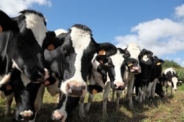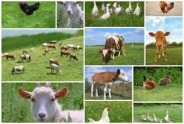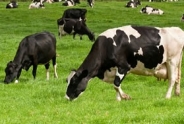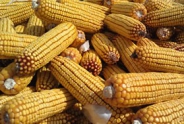And You Thought Two Languages Were Confusing!
Libby Eiholzer, Bilingual Dairy
Northwest New York Dairy, Livestock & Field Crops
June 14, 2013
If there are Hispanic employees on your farm, chances are that you've come across more than one individual who speaks Spanish as his or her second language. Although Spanish is now the official language of Mexico and all Central American countries, numerous indigenous languages were spoken by the native peoples before Spanish was introduced in the early 1500s. With time Spanish was adopted as the common language, but many indigenous languages have survived over the centuries.<
To recognize just how complex the situation is, you have to appreciate the number of indigenous languages that are still spoken. In Guatemala (which is roughly equal in size to Tennessee), 23 indigenous languages are spoken today. In Mexico 63 still exist. While the majority of Mexicans (97%) and Guatemalans (93%) do speak Spanish, many people who are raised in indigenous communities don't learn Spanish until they attend school. Most indigenous languages are completely unique and have nothing in common with each other; learning Q’eqchi’ won't help you to understand a word of Poqomam!
In general, the upper classes in both Mexico and Guatemala are composed of lighter skinned people of Spanish or mixed Spanish-indigenous heritage, while the lower classes are composed of darker skinned people of predominantly indigenous heritage. This social distribution inherently lends itself to discrimination. The attitudes of the governments in both Guatemala and Mexico have also helped to foster a culture of discrimination towards indigenous people. An extreme example of this is the genocide carried out by the Guatemalan government during the civil war (1960-1996) in which 200,000 people (mostly indigenous) were killed.
So what does this mean for your dairy? If your Hispanic employees come from a variety of backgrounds, there may be some additional communication difficulties for those who don't speak Spanish well. Finding a translator who speaks the specific indigenous language of your employee(s) is not a practical solution because there are simply too many languages. Providing SOPs not only in Spanish, but also with pictures, giving hands-on training and routinely monitoring employee performance are strategies that can help you to ensure that these employees understand their duties on the farm.
While discrimination does not always occur, it is definitely something to be aware of when observing the interactions between Hispanic employees. Two Mexican employees may look very similar to an American employer, and yet they may actually come from very different cultural backgrounds. (By the same token, a Mexican employee probably wouldn't know the difference between a herdsman of German heritage and a feeder of Polish heritage!)
You may not be able to communicate with some employees in their first language, but you're more likely to get through to them using their second language than their third! Please feel free to contact me if you're interested in dairy skills training or employee management services for your Spanish-speaking employees.
Upcoming Events
Cornell Cow Convos Podcast- Episode 8 Release
April 25, 2024
Cornell Cow Convos-Episode 8
Western NY Value-Added Dairy Discussion Group: Jess May- Farm Credit East Webinar
May 2, 2024 : Value-Added Dairy Discussion Group Webinar: Jess May- Farm Credit East
Register here:
https://cornell.zoom.us/webina...
Western NY Value-Added Dairy Discussion Group: Eden Valley Creamery
May 3, 2024
South Dayton, NY
Registration for this discussion group is required and limited.
Announcements
Follow us on Instagram
See photos and reels of our most recent events and programs!Join us on Facebook!
Follow us on Facebook to get up to date posts about events, workshops and everything NWNY!Add us on LinkedIn!
Connect with us on LinkedIn to get more information about upcoming workshops and programs!





